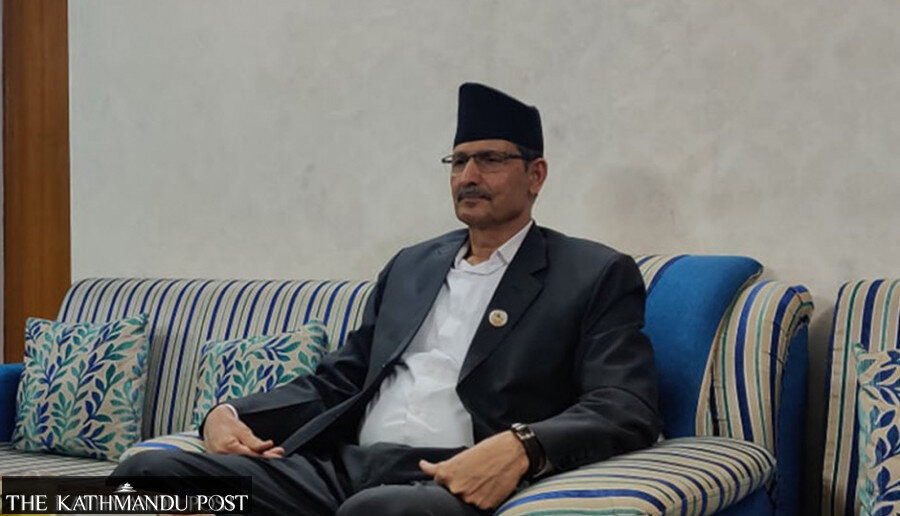National
Continued refusal to issue verdict on Agni Sapkota case raises eyebrows
The Supreme Court has put off hearing in the case more than 60 times.
Binod Ghimire
After deferring hearings on it for more than 60 times, the Supreme Court had earmarked June 5 for the verdict announcement on the writ petition demanding an investigation into a case of murder after abduction against CPN (Maoist Centre) leader Agni Sapkota.
The Chief Justice Bishowambhar Prasad Shrestha-led five-member bench, however, postponed the verdict to August 7 and then to August 28. Finally, on Wednesday, the bench issued an order to seek the necessary documents, refraining from passing the verdict.
The top court has directed the District Police Office, Kavrepalanchok, to present the original documents showcasing progress made in investigating the case as per its past direction. “If no investigation has been done, explain the reasons,” reads the ruling.
According to lawyers advocating the case, such rulings are made at the time of hearing, not at the time of announcing the verdict.
“The court had the documents it wanted. I don’t think it was necessary to see any other decision. It is clear that the verdict was intentionally deferred as a senior politician is linked to the case,” Pushpa Raj Poudel, an advocate pleading the case on behalf of the plaintiff, told the Post. “Seven chief justices have retired since the case was filed. I don’t know how long it will take.”
Arjun Bahadur Lama, 45, was attending a meeting at a local school in Dapcha of Kavrepalanchok district on April 29, 2005, when a group of then-CPN-Maoist combatants spirited him away, saying they wanted to talk to him about something. The rebels never let him go.
A subsequent probe by the National Human Rights Commission concluded that the Maoists had killed Lama following the abduction. His family members accused Maoist leaders Agni Sapkota and Suryaman Dong, among others, of abducting and murdering Lama. Sapkota and Dong, however, deny the accusation.
The frequent attempts of Purnimaya, Arjun’s wife, to register a first information report was turned down by the Kavre district police, prompting her to knock the Supreme Court’s door on March 3, 2008 asking for its intervention in the case.
The police registered the case after the top court’s directive to immediately accept the complaint and update it on the proceedings every 15 days. Kavre police wrote to Sindhupalchok police to find and arrest Sapkota. But Sindhupalchok police reported that Sapkota was nowhere to be found.
Sapkota got elected to Parliament from Sindhupalchok thrice after the complaint was lodged and went on to become a Cabinet member and then the Speaker.
After submitting a few quarterly reports, the police stopped updating the court on the progress in the investigation. Meanwhile, in 2011, Sapkota was appointed the minister for information and communication. A public interest litigation was filed by a group of human rights activists challenging his ministerial appointment. They argued that Sapkota as a minister could influence the investigation.
Although the court refused to issue an interim order against his appointment, it raised serious concerns over the lack of progress in the probe. The court, however, said that as Sapkota was under the scanner, it was up to him and his mother party to make a moral judgment on whether he should resign.
It also ordered the police to carry out the investigation effectively and independently. However, the police didn’t abide by the ruling. On July 12, 2o12 the government decided to stop the investigation and Purnimaya moved the court against the decision. Responding to her petition, the Supreme Court then ordered the government not to stop the investigation process.
In March 2016, the court decided that the Constitutional Bench would henceforth hear the petitions filed by Purnimaya and civil society members. Since then, the hearing has been scheduled 63 times.
Sapkota was elected Speaker in January 2020. Although human rights activists took to the streets against the appointment, little did it affect the Maoist Centre and other parties supporting him. He is vice-chairperson and spokesperson for the party.
As the chief justice and justice Prakash Dhungana retire before the district police submits its report, the hearing needs to start from zero. Shrestha retires on October 4 and Dhungana on October 21.
“It is unfortunate that the court takes over a decade to decide a case,” said Poudel.




 22.12°C Kathmandu
22.12°C Kathmandu













